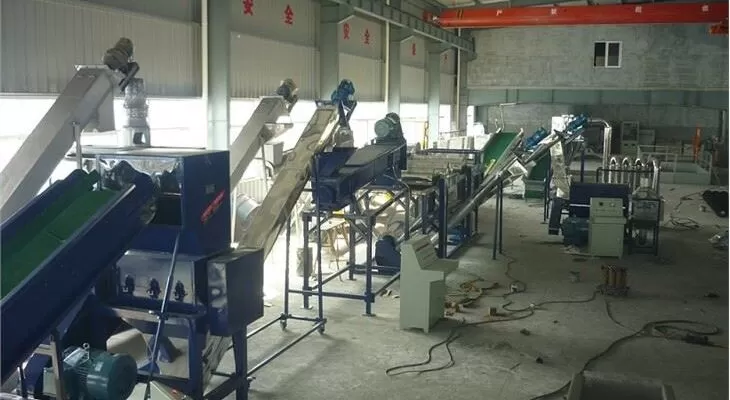In today’s world, plastic waste is a major concern. It clogs our oceans, harms wildlife, and contributes to pollution. The Plastic Recycling and Environmental Innovation Competition aims to tackle these pressing issues. It encourages creative solutions and innovative ideas for effective plastic recycling and environmental protection. But how does this competition drive change?

By bringing together visionaries, entrepreneurs, and industry experts, this competition sparks collaboration and innovation. Together, we can rethink waste management and create a more sustainable future.
Why Does Plastic Recycling Matter?
Plastic recycling is not just a trend; it’s a necessity. Every year, millions of tons of plastic end up in landfills and oceans. This is a huge waste of resources. By recycling, we can conserve energy, reduce greenhouse gas emissions, and promote a circular economy.
At Amige, we understand the importance of plastic recycling. Our mission is to provide top-quality plastic crushers and shredders that support efficient recycling processes.
What Are the Goals of the Competition?
The Plastic Recycling and Environmental Innovation Competition has several key goals:
- Promote Innovation: We want to inspire new ideas and technologies in plastic recycling.
- Raise Awareness: The competition helps educate the public about the importance of recycling and environmental sustainability.
- Foster Collaboration: By bringing together different stakeholders, we can share knowledge and resources to tackle plastic waste more effectively.
- Encourage Participation: Everyone can play a role in sustainability. This competition invites participants from all backgrounds to contribute.
These goals are essential for creating a more sustainable future.
Who Can Participate in the Competition?
The competition is open to a diverse range of participants. This includes:
- Students: Young minds often have the most creative ideas. Their fresh perspectives can lead to groundbreaking innovations.
- Entrepreneurs: Startups and businesses focused on sustainability are encouraged to join.
- Researchers: Academics and professionals with expertise in environmental science can offer valuable insights.
- NGOs: Non-governmental organizations focused on environmental issues can participate to share their experiences and initiatives.
The more diverse the participants, the richer the ideas generated.
What Are Some Innovative Ideas from Past Competitions?
Past competitions have seen some remarkable innovations. Here are a few standout examples:
- Biodegradable Plastics: Some participants have developed alternatives to traditional plastics that break down more easily in the environment.
- Plastic Waste Bricks: Innovative projects have turned plastic waste into durable building materials, promoting recycling while addressing housing shortages.
- Recycling Apps: Technological solutions like apps that help users locate recycling centers have gained popularity. These make recycling more accessible to the public.
These ideas demonstrate the potential of creativity in addressing plastic waste.
How Does the Competition Impact Local Communities?
The competition has a ripple effect on local communities. By promoting recycling and sustainability, we can create jobs and stimulate local economies.
For instance, recycling initiatives can lead to the establishment of new businesses focused on waste management. This not only reduces waste but also provides employment opportunities.
Furthermore, community engagement in recycling efforts fosters a culture of sustainability. When people see the impact of their actions, they are more likely to participate.
What Are the Prizes and Incentives for Participants?
To encourage participation, the competition offers various prizes and incentives. These can include:
- Monetary Awards: Financial support can help bring innovative ideas to life.
- Networking Opportunities: Participants get to connect with industry leaders, investors, and like-minded individuals.
- Exposure: Winning or participating can provide significant media coverage, raising awareness about the participants’ work.
- Mentorship Programs: Access to mentors can guide participants in developing their ideas and navigating the challenges of bringing them to market.
These incentives make participation more appealing and rewarding.
How Can We Encourage More Participation in Future Competitions?
To boost participation in future competitions, we can take several steps:
- Increase Awareness: Utilize social media and outreach programs to inform potential participants about the competition.
- Engage Educational Institutions: Collaborate with schools and universities to encourage student participation.
- Highlight Success Stories: Showcasing past winners and their innovations can inspire others to join.
- Provide Resources: Offering workshops and resources can help participants refine their ideas and enhance their submissions.
By implementing these strategies, we can cultivate a vibrant community of innovators dedicated to sustainability.
Conclusion
The Plastic Recycling and Environmental Innovation Competition plays a vital role in addressing plastic waste. By fostering creativity and collaboration, we can drive meaningful change. Let’s continue to innovate for a sustainable future. Together, we can turn ideas into action.
